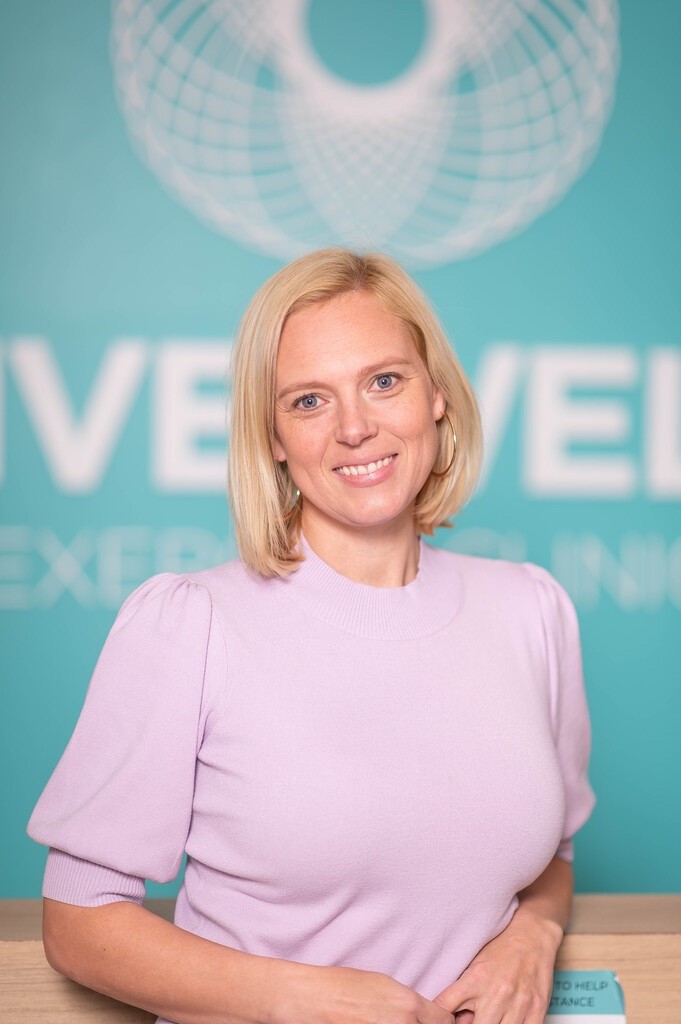The Poundemic: Shifting the Conversation Around Weight Loss

Almost half of all Canadians experienced weight gain over COVID. As our provinces are re-starting and re-opening, we are going to gain members who are focused on weight loss. As fitness professionals, it is our responsibility to support and guide our members while also providing evidence-based programming, information, and tools.
There has been a concerning word circulating in the media: the “poundemic” – a term given to the collective weight gain since March 2020. According to a survey done by Agri-Food Analytics Lab at Dalhousie University in April 2021, 42.3 per cent of Canadians gained weight during the pandemic, on average between six to10 pounds; Another study, based out of the US, found that people gained about 1.5 pounds per month – which could lead to an impactful 16 pounds over the course of a year. In a nation where there was already an obesity epidemic, this is concerning. Boris Johnston, the Prime Minister of the United Kingdom, has targeted obesity as one of the first issues to tackle after the pandemic has receded.
This is not simply about our clients not fitting into their summer shorts – the weight gain has the potential to be a healthcare crisis, and take a toll on us long after we are vaccinated. Repeated studies have shown that obesity and chronic health like diabetes and heart disease have been directly tied to a more severe COVID outcome.
The inactivity crisis globally is an added concern. Our lives were severely disrupted when we lost the natural rhythm of life – including the NEAT (Non-Exercise.Activity Thermogensis) we snuck into our days, such as walking around the office, or walking from the car to the grocery store. We got locked down and we sat down. With gyms closed across the country for over a year, many of our clients lost the routine of exercising together, which is known to contribute to better health particularly with our aging population.
According to Fitness Industry Council of Canada, at least 90 per cent of Canadians are not getting the recommended 150 minutes of exercise weekly. And we are not simply inactive – we have become even more sedentary, which we know poses a far greater risk than smoking, diabetes, and obesity…combined!. Stress, fear, and anxiety levels escalated and many of us reached for comfort foods.
We moved less; we ate more. We put on weight. We are here now.
The question is: How do we help our clients find their way forward?
Fear never inspires change. What motivates us to change is personal. It is not rooted in wanting a better, healthier life. Our motivation is founded in a specific vision we have for our life – I want to be able to get down on the floor and play with my grandkids (…and get back up again!). At LIVE WELL, we have spent more than a decade helping people learn healthy habit change – and the central premise is basic: Start low, go slow. We know that only eight per cent of New Year’s Resolutions stick. Crash diets have never worked, and going out for a 10K fun run after months of sitting on the couch is going to cause more harm than good if your client is completely deconditioned.
Right now, we have an opportunity to shift the conversation about weight loss.
Let us rethink how we start again. Yes, many of our clients will want to lose weight, and it is up to you to provide them with guidelines on how they can safely and effectively, and how to set them up for success.
Here are six suggestions on how to work with your clients coming out of the pandemic.
1. Separate exercise from weight loss once and for all.
Exercise is a great prescription for most chronic health conditions, but it is not a weight loss drug. You are going to have clients eager to sweat off the pounds that they have gained. The fitness industry was called into question for potentially failing those with obesity, and countless studies have shown that exercise alone plays a very small role in weight loss. But what we need to do is encourage our clients to see exercise as an integral part of the solution of their health journey – people who exercise make better choices about the food they eat, how they sleep, and their stress levels – which are all intrinsically tied to weight loss.
2. Meet your clients where they are.
Masks or no masks? Social distancing? Do they want to meet in person or will they want to adopt a hybrid virtual / in-person system? Listen to your clients’ needs and have them not only do an updated PAR-Q, but really listen to them and ask them questions. We are experiencing a mental health crisis, and exercise is an excellent tool to help with anxiety, stress, and depression. Educate yourself on the latest research.
3. Forget the number on the scale.
We have told clients for years that if they want to lose weight they should move more and eat less, but no one wants to be reminded that they have been doing the exact opposite for more than a year. There is logic to health at any size. At LIVE WELL, many of our members are not your average gym goer, and have never felt they belonged inside a “typical” gym. We have helped members with obesity embrace exercise and we know the benefits for all sizes are imperative for our physical and mental health – BMI is not the most useful benchmark for health.
4. Understand your clients with obesity.
Obesity is a complex chronic condition. At LIVE WELL, we have been working with obese clients for ten years and our goal is never to “get the weight off” but to be more active. In fact, our dose of physical activity is the number one predictor of our overall health. It is time for the fitness industry to understand the impact they can have on their clients with obesity – and place exercise as a valuable tool in their toolbox, but also build up their confidence and self-esteem. We need to create change and help everyone find activities they love, while offering a sense of belonging and inclusion.
5. Habits first. Outcomes later.
We must work with our clients to build healthy habits with a realistic action plan. Achieving and practicing healthy behaviours builds self-efficacy. We all need to feel like we have accomplished something to taste that sweet feeling of success. Plans should be about progress, not perfection. The foundation of a great plan is about what I am going to DO, not about what I hope to ACHIEVE. I am going to make my lunch for work four times this week – versus – I am going to lose two pounds this week. Plans that are centered around our habits give us a sense of control and do not set us up for failure.
6. Celebrate wins.
AT LIVE WELL, we have a WIN WALL where each member writes down their wins - making it to all three of their weekly sessions, being able to play on the floor with their grandchildren. We need to cheer each other on and your clients need not only your expertise, but your support, love, and encouragement.
None of this is easy to do. Rome was not built in a day. We need to support our members to build healthy habits a day at a time. As fitness professionals, we are more than capable of doing this. I believe in us; I believe in you!
The fitness industry can lead everyone to a happier, healthier, and more balanced life.

